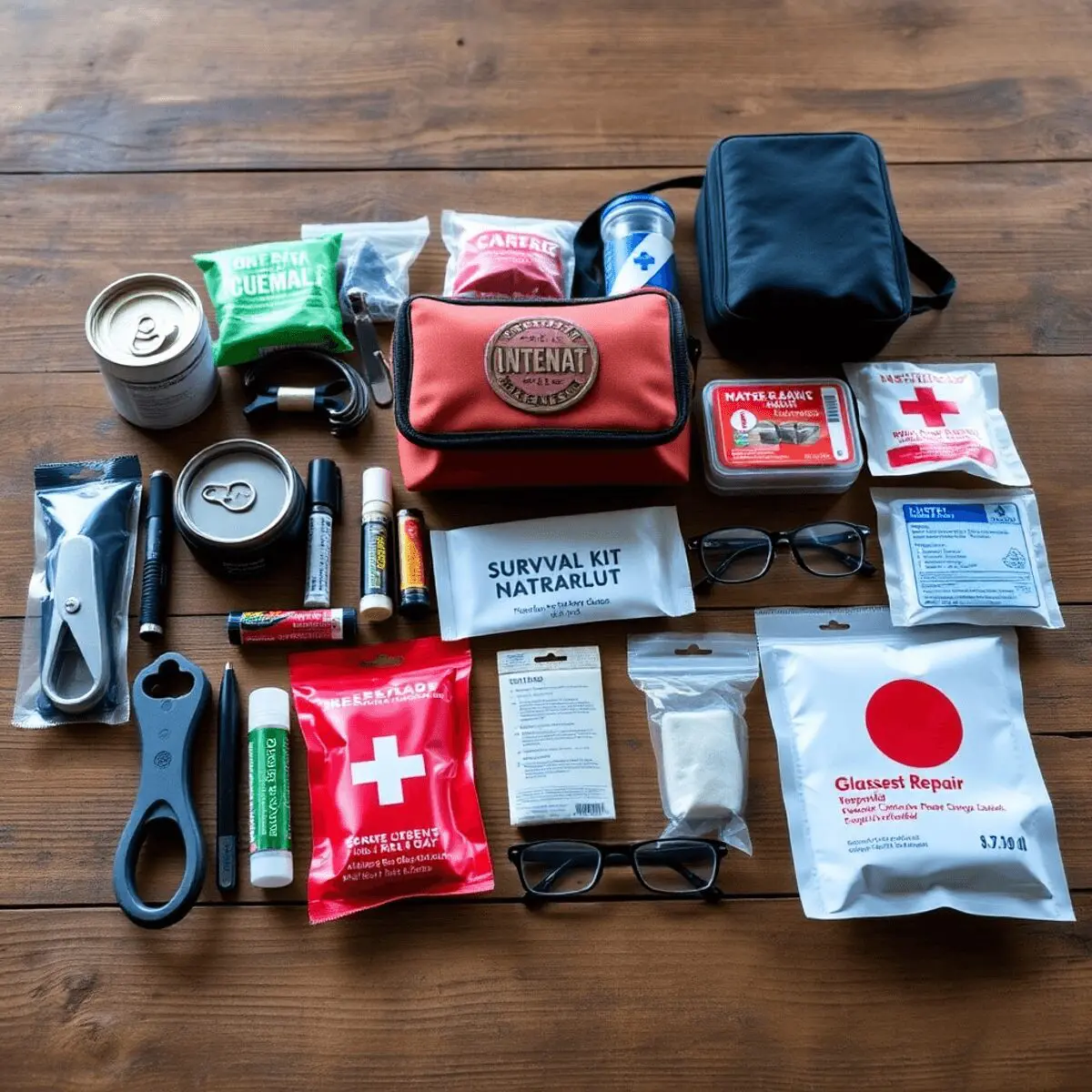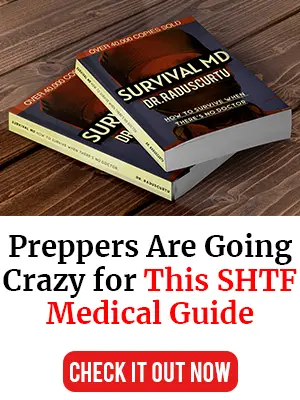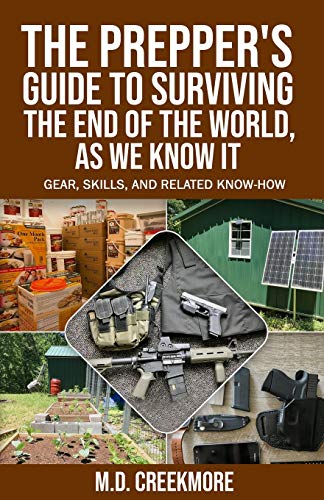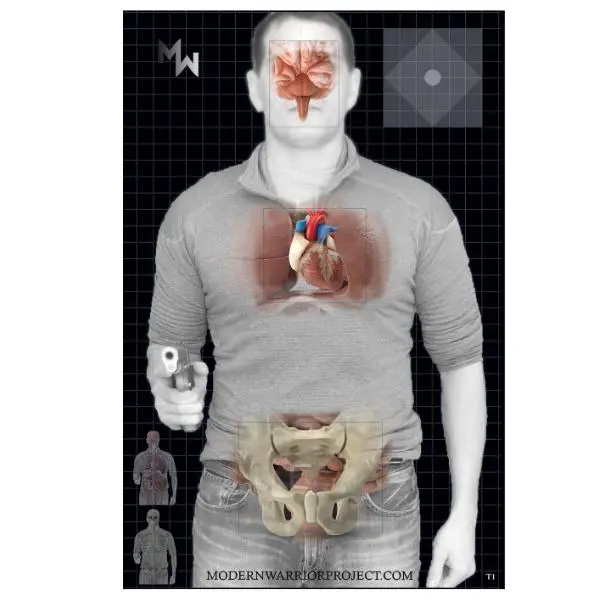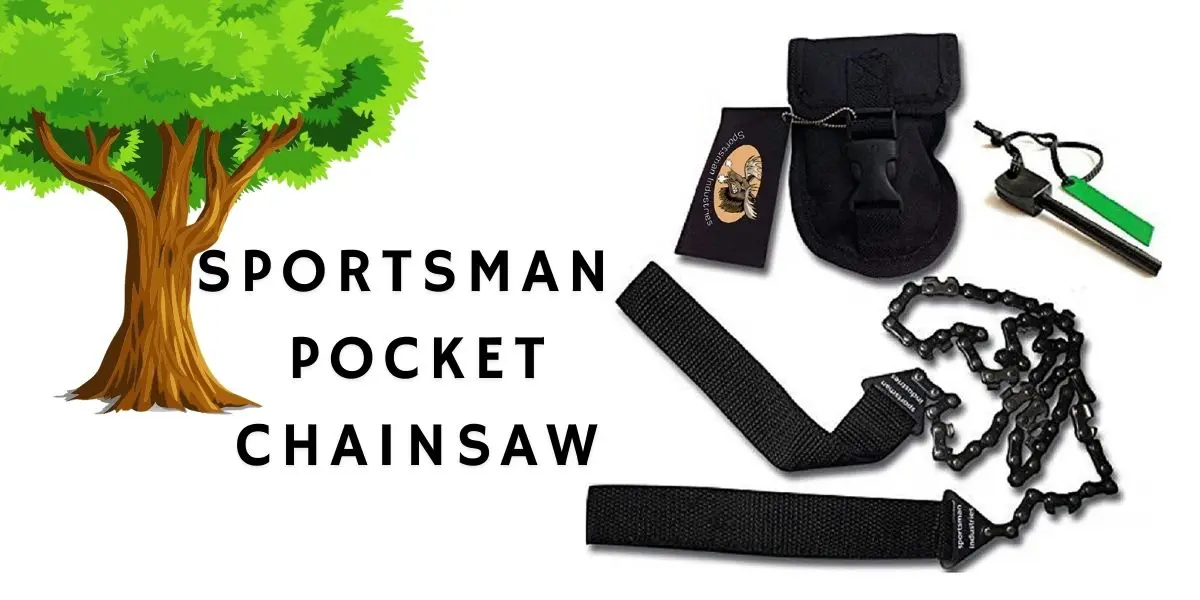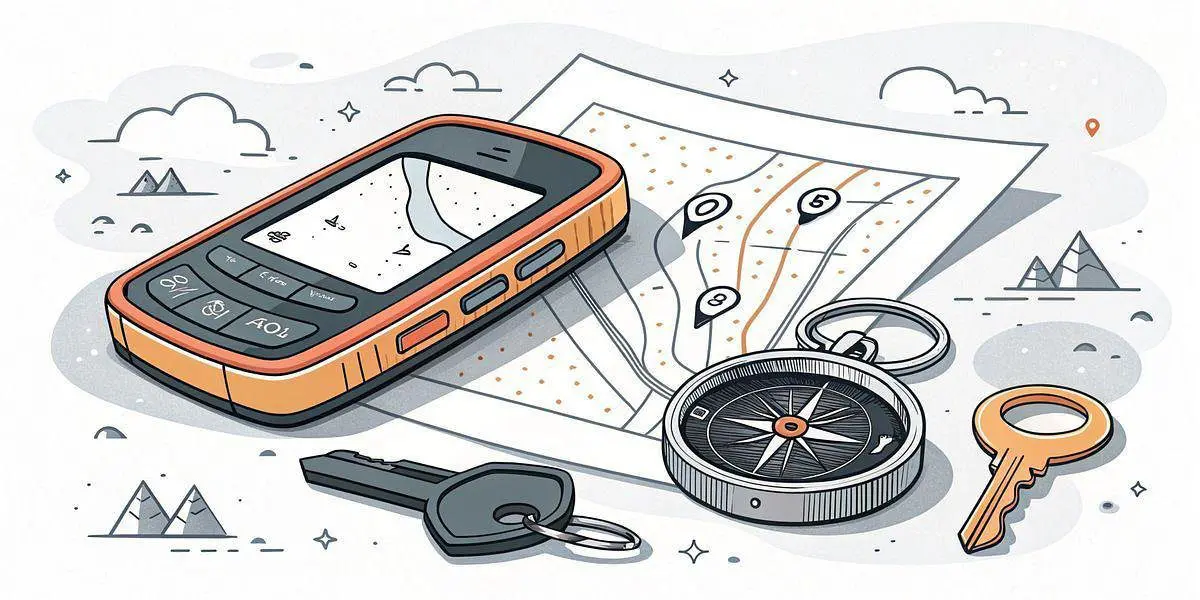Prepping often conjures images of towering stockpiles filled with rifles, water filters, and massive food caches. The big-ticket survival gear grabs the spotlight while overlooked daily use items that preppers should stock up and prep for quietly gather dust on the checklist. This oversight can be a critical misstep.
During SHTF (S**t Hits The Fan) or TEOTAWKI (The End Of The World As We Know It) events, it’s not just about having enough ammo or solar panels. Missing the small stuff—the humble can opener, lip balm, or a glasses repair kit—can erode morale and even jeopardize survival. Painful cracked lips or blurry vision might seem trivial until they become relentless distractions or health hazards.
This article shines a light on those surprising but critical daily-use items every prepper should stash away. Expect to rethink your stockpile strategy beyond the obvious essentials. It’s also crucial to avoid common pitfalls in prepping, such as making these 5 crucial prepping errors, which could compromise your readiness. Additionally, remember that effective prepping isn’t just about home stockpiling; it’s also about being prepared on the go. Here are 7 items a prepper should always keep in their vehicle for unexpected situations.
The Hidden Risks of Overlooking Daily Essentials
Common prepping mistakes often involve ignoring important everyday items in favor of big survival gear, which can lead to unexpected problems. This tendency can have serious consequences for a prepper’s well-being and overall readiness:
- Prioritizing Large Equipment: It’s natural to focus on getting major survival tools, but neglecting small necessities can be harmful in crisis situations.
- Psychological and Physical Consequences: Simple comforts like lip balm or clear vision may seem unimportant, but their absence can cause discomfort, distraction, and even health issues under stress.
- Illustrative Examples: Imagine having stored food but no can opener to access it or a camp stove without a pot for cooking—small oversights with big impacts.
- Maintaining Morale: In high-stress situations, the connection between comfort and morale is crucial. Ignoring daily essentials can lower morale and make it harder to handle challenges that come up.
By understanding how important these often ignored items are, preppers can become more resilient and better prepared for any disaster event.
15 in 1: Your Complete Guide to Surviving Any Crisis with Expert Strategies for Prepping, Gear, First Aid, Food Storage, Water Filtration, Self Defense &...
Hygiene and Health Items Often Ignored but Vital for Preppers
Importance of Personal Hygiene
Personal hygiene is critical in preventing illnesses and maintaining dignity during extended survival scenarios. Neglecting hygiene can lead to various health issues that could impact one’s ability to survive.
Feminine Hygiene Products
These are often overlooked but are essential for female preppers. Consider stocking both reusable and disposable options in bulk. Cleaning considerations are crucial to prevent infections and maintain health in austere conditions.
Over-the-Counter Medicines (OTC)
Aspirin is a common item, but preppers should also consider other OTC medications to address stress-related ailments, allergies, digestive problems, and more. Having a well-rounded selection of OTC medicines can help manage minor medical issues that may arise during emergencies.
Lip Balm
Often underestimated, lip balm is a simple yet crucial item to prevent cracked and painful lips. In harsh conditions, such as extreme cold or dry climates, chapped lips can be not only uncomfortable but also a distraction from critical tasks.
Vision and Personal Care Tools That Can Make a Difference
Eyesight often gets overlooked in prepping conversations, yet compromised vision can instantly turn a manageable situation into a hazardous mess. Imagine fumbling with gear, misreading instructions, or worse—injuring yourself because your glasses broke or contacts became unusable. Visual clarity isn’t just convenience; it’s survival.
Glasses repair kits are among the most underrated Overlooked Daily Use Items that preppers should stock up and prep for. These kits come with tiny screws, screwdrivers, nose pads, and even replacement temples. Toss one in your bug-out bag or emergency kit to ensure you can quickly restore your eyewear’s functionality without hunting for a specialist when time is against you.
Other personal care essentials hold similar weight:
- Nail clippers: Small but mighty. Overgrown nails invite infections or snag on fabric and gear. Trimming nails keeps you comfortable and reduces potential injury.
- Tweezers: Removing splinters and debris prevents infection and painful distractions.
- Mirror compact: Useful for signaling, assessing injuries, or simple grooming checks.
Ignoring these tools risks deteriorating comfort and health—a slippery slope when every detail counts. Prepping isn’t just about surviving the big shocks; it’s about maintaining functionality day after day under stress. Vision care prep paired with practical personal care items rounds out a stockpile that truly supports resilience at every level.
Kitchen and Cooking Essentials for Effective Food Preparation and Rationing
Survival isn’t about gourmet meals; it’s about getting food into your system without unnecessary hassle or waste. The kitchen gear you stash away can make or break your ability to eat efficiently when power grids fail and modern conveniences vanish.
1. Manual Can Opener
Sounds trivial until you face a mountain of canned goods and no electricity. Electric openers are useless off-grid, so a durable manual can opener—preferably one with a sturdy grip and sharp blade—is non-negotiable. Nothing kills morale faster than being starved by your own stockpile.
2. Camp Stove Cookware
Your survival stove won’t do its job without the right pots and pans. Look for durable, compact cookware designed for open flame use. Materials like titanium or anodized aluminum resist warping and corrosion, while tight-fitting lids keep heat in, speed cooking, conserve fuel, and prevent accidents. Multifunctional pieces that nest together save precious space.
3. Rationing Tools
Measuring cups often get overlooked but become vital when stretching limited food supplies. Precise portion control is the difference between lasting weeks versus days. Dehydrated meals demand exact water ratios to avoid inedible mush or wasted hydration resources.
This trifecta of manual can opener, camp stove cookware, and rationing tools forms the backbone of any prepper’s kitchen arsenal. Without them, stored calories turn into frustrating puzzles rather than life-sustaining fuel. Your stomach—and sanity—will thank you.
To ensure you’re well-prepared for any situation, consider following some guidelines on building a year-long disaster preparedness food supply.
Cleaning Supplies Adapted for Survival Conditions
In survival situations, you can’t always rely on having access to water or chemical cleaning products. When things go wrong, using a garden hose or strong cleaners to wash dishes isn’t just impractical—it can actually be dangerous. If you don’t clean your utensils properly, bacteria can grow and cause illnesses that could ruin all your preparation efforts.
Why Traditional Cleaning Methods May Not Work
In survival scenarios, traditional cleaning methods may not be effective or safe for the following reasons:
- Limited Water Access: You may not have a reliable source of water to wash your dishes.
- Harsh Chemicals: Using strong cleaning agents can be harmful, especially in small enclosed spaces.
- Bacterial Growth: Dirty utensils can become breeding grounds for bacteria, leading to potential health risks.
Alternative Cleaning Solutions for Survival
To overcome these challenges, it’s important to consider alternative cleaning solutions that are suitable for survival conditions. Here are some options to explore:
- Biodegradable Dish Soap Alternatives: Look for eco-friendly dish soaps that are biodegradable and won’t harm the environment.
- No-Water Cleaning Solutions: Explore products that require no water for cleaning, such as wipes or sprays specifically designed for off-grid living.
These alternatives offer several benefits:
- Sustainable Prepping Supplies: By using sustainable cleaning products, you can reduce the risk of contamination and ensure your reusable gear stays clean.
- Preservation of Resources: These solutions help conserve limited resources by minimizing exposure to pathogens and preventing the spread of diseases.
- Reduced Health Hazards: Less reliance on harsh chemicals means fewer health risks in confined survival spaces.
Ignoring smart cleaning solutions can lead to simple infections turning into life-threatening problems during emergencies. It’s crucial to prioritize hygiene and cleanliness even in challenging circumstances.
Essential Repair Tools to Maintain Gear Functionality
As a prepper, it’s crucial to have the right tools on hand to fix and maintain your gear. Here are some essential repair tools that every prepper should have in their arsenal:
1. Duct Tape
Duct tape is known for its versatility and strength. It can be used for a wide range of repairs, making it an essential item for any prepper. Here are some ways you can use duct tape:
- Repairing gear such as tents, backpacks, or sleeping bags
- Fixing shelter materials like tarps or poles
- Mending clothing items such as jackets or pants
- Creating temporary fixes for broken equipment
With duct tape in your toolkit, you’ll be able to make quick and effective repairs on various items without the need for specialized tools or skills.
2. Zip Ties
Zip ties are another valuable addition to your repair toolkit. These sturdy plastic fasteners can come in handy in various situations, particularly when securing equipment under stress or during emergency conditions. Here’s how you can utilize zip ties:
- Bundling cables or cords together to prevent tangling
- Securing loose parts of gear or equipment
- Creating makeshift repairs by tying things together
Having a supply of zip ties readily available will give you peace of mind knowing that you can quickly fix or secure items when needed.
3. Safety Pins
Safety pins may seem like simple accessories, but they can serve multiple purposes beyond just holding fabric together. Here are some practical uses for safety pins that preppers should consider:
- Patching clothes by pinning torn areas temporarily until a proper fix can be made
- Sealing bags or containers to keep food or supplies fresh
- Fixing zippers on jackets or bags using a safety pin as a temporary solution
- Creating fishing hooks by bending the safety pin into shape
Including safety pins in your repair kit ensures that you have versatile tools at your disposal for various situations.
4. Sewing Kits
While duct tape and zip ties offer quick fixes, there are times when more permanent repairs are necessary. This is where sewing kits come into play. A basic sewing kit should include needles, thread, and other essential items for mending purposes. Here’s why sewing kits are indispensable tools for preppers:
- Repairing ripped clothing items such as shirts, pants, or jackets
- Fixing backpacks with torn straps or seams
- Mending tarps to preserve insulation properties
By being able to sew, you’ll be able to extend the lifespan of your gear and maintain its functionality even after wear and tear occurs.
Handheld Ham Radios (VHF & UHF) with High Gain Antenna and Programming Cable (2Pack) (M)
Integrating These Essentials into Your Prepper Stockpile Strategy
When it comes to prepping, it’s easy to get caught up in the excitement of acquiring high-tech gear and survival tools. However, true preparedness goes beyond just having the latest gadgets. It involves being ready for any situation, including those that require comfort and health.
1. Inventory Management: Don’t Overlook Daily-Use Items
As you build your prepper stockpile, it’s important to take stock of what you already have and what you’ll need in the future. This is where inventory management comes into play.
- Assess your current supplies: Take a look at your pantry, bathroom cabinets, and any other areas where you store food and hygiene products. Make a list of what you have on hand and what needs to be replenished.
- Identify overlooked items: While it’s crucial to have traditional prepping gear like flashlights, first aid kits, and camping equipment, don’t forget about the everyday essentials you’ll rely on during an emergency. These include things like toiletries, cleaning supplies, and non-perishable food items.
- Plan for long-term storage: When stocking up on daily-use items, consider their shelf life and how you’ll store them. Look for products with a long expiration date and find ways to maximize your storage space.
By focusing on both traditional prepping gear and overlooked daily-use items, you’ll create a more comprehensive stockpile that addresses all aspects of preparedness.
2. Sourcing Quality Hygiene Products in Bulk
Hygiene is an often-neglected aspect of prepping, but it’s essential for maintaining health and preventing illness during challenging times. To ensure you have enough hygiene products on hand, consider sourcing them in bulk.
- Research bulk purchasing options: Look for local wholesalers or online retailers that offer bulk discounts on hygiene products. This could include items like soap, toothpaste, toilet paper, and feminine hygiene products.
- Choose space-efficient packaging: Since storage space may be limited in your prepper stockpile, opt for hygiene products that come in compact packaging or multi-pack options. This will help you maximize your storage capacity without compromising on quantity.
- Prioritize longevity: When buying hygiene products in bulk, pay attention to their expiration dates. Select items with longer shelf lives so that they remain usable when you need them most.
By proactively sourcing quality hygiene products in bulk, you’ll ensure that you have adequate supplies to maintain personal cleanliness and prevent the spread of disease during emergencies.
3. Shifting Your Mindset Towards Holistic Readiness
While having big gear is important for survival situations, it’s equally vital to prioritize comfort and health as part of your prepping strategy. This requires a shift in mindset from solely accumulating equipment towards embracing holistic readiness.
- Recognize the importance of comfort: In extended emergencies or situations where you may be living off-grid for an extended period, comfort becomes crucial for mental well-being. Consider investing in items like sleeping bags, camping chairs, portable cooking appliances – anything that can enhance your overall comfort during challenging times.
- Focus on maintaining health: During crises when access to healthcare may be limited or non-existent, taking care of your health becomes paramount. Stock up on vitamins/supplements specific to your needs (e.g., vitamin C), healthy snacks (nuts/seeds), exercise equipment (resistance bands), etc., which can contribute positively towards physical fitness & immunity.
For more detailed guidance on efficient stockpiling techniques that can significantly enhance your prepping strategy visit here.
Conclusion
Small, often overlooked items that we use daily are not just unimportant extras; they can make or break your survival experience. If you ignore these essentials, you invite unnecessary discomfort, inefficiency, and even danger when things go wrong. Don’t let your prepper stockpile be a tribute to bulky gear while neglecting the small but important things that keep you functioning at your best.
- Check out the Modern Warrior Project YouTube channel for practical prepping resources.
- Discover expert tactics, mindset coaching, fitness preparation, and actionable advice rooted in the Simply Proficient philosophy.
- Level up beyond hoarding gear—embrace a balanced stockpile that includes those critical small items too.
Become a master of survival by valuing every part of your equipment, no matter how insignificant it may seem.

